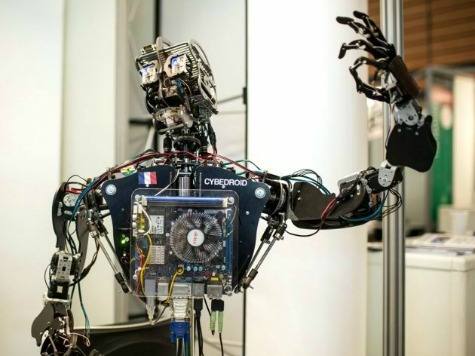The headline in Politico seems innocuous enough: “Napster co-founder Sean Parker to lead civic startup.” According to the piece, the reason for the startup is that Parker and other Silicon Valley types “want to help get out the vote and are pouring millions into a new startup to boost American civic engagement.”
Who can be against “civic engagement”? We’re all for more participation, right? That’s the American Way, right? As the piece details:
The company, called Brigade, is designed to combat a lack of political engagement and interest in all levels of government across America–although the firm’s road map is unclear at this time. Silicon Valley magnates Sean Parker, Ron Conway and Marc Benioff are among the big-name investors in the company, according to two sources familiar with the effort.
And so, the article tells us, “the firm’s road map is unclear.” Or maybe it isn’t so unclear, if one knows where to look–and notices what’s missing. Because there’s one potentially important word that’s missing from the article. That word is “Democrat.” And come to think of it, there’s another word missing: “liberal.”
So could it be the that Politico is hiding the real story? Could it be that Politico is helping to spin the new startup as some sort of good-government operation–when, in fact, it bids to be a newfangled political machine for the Democrats? Is that possible? Would Politico do such a thing?
A look at the lead investor, Parker, might raise exactly those sorts of suspicions. According to Politico, Parker is putting $9 million into Brigade. And Parker, worth an estimated $2 billion, is a big donor–one of the biggest, in fact–to Democratic and liberal causes, including gun control.
For his part, Parker has a record of in-your-face activity, in politics as well as everything else. Back in 1999, he co-founded Napster, the file-sharing service that disrupted, even devastated, the music business. In 2004, he became the president of Facebook, until he was forced to resign a year later in the wake of a drug bust. (He was not charged.) As detailed in many places, including the 2010 movie, “The Social Network,” Parker, a major investor in the company, continued to play an important role in its growth. As he says in the film, “A million dollars isn’t cool–you know what’s cool?” And then he answers his own question: “A billion dollars.” Yes, that’s cool. And so by his own money metric, Parker is doubly cool.
Just last year, he spent a reported $10 million on a “Lord of the Rings”-themed wedding amidst the California redwoods; the pictures ran in Vanity Fair.
Another Silicon Valley mogul involved in Brigade is Marc Benioff. In 2012, he raised $500,000 for Obama’s re-election: “I’m squarely a supporter of the president, and he is absolutely the right man for the job.” (Benioff also gave a $10,000 contribution to Republican Paul Ryan.)
As for the third mogul, Ron Conway, he, too, was a ’12 Obama supporter, although he has given lesser amounts of money to Republicans as well. Indeed, he is most closely associated with signature Silicon Valley causes, such as opposition to anti-piracy legislation, which puts him at odds with Democratic constituencies, notably Hollywood.
So yes, it’s possible that these techsters simply aim, as Politico says, to boost civic engagement, albeit in keeping with their own Valley views. Or it’s possible that they are building a next-gen Democratic political machine, powered by the Valley’s young guns. So which is it? Brigade is young; we will have to wait and see.
But this much seems clear already: Brigade isn’t coming into existence to help the Republican Party. And whatever politicking Silicon Valley might have in mind, Politico is fully in on the game.

COMMENTS
Please let us know if you're having issues with commenting.